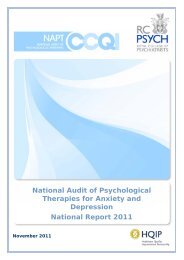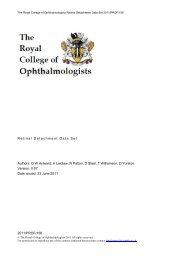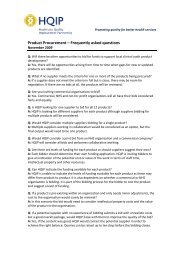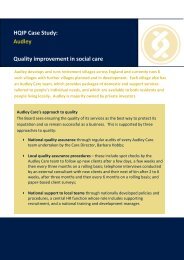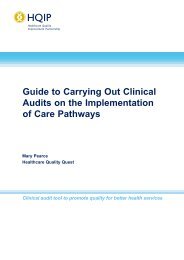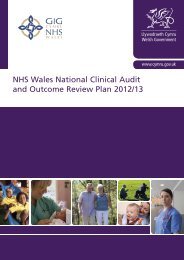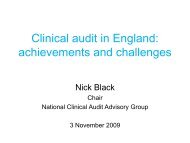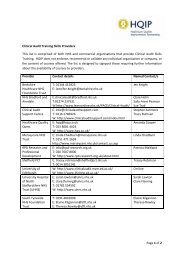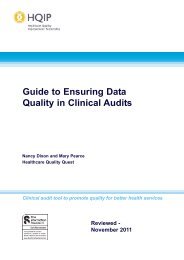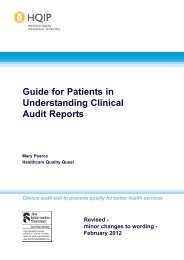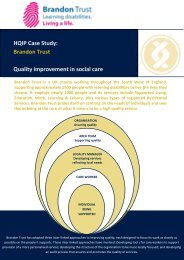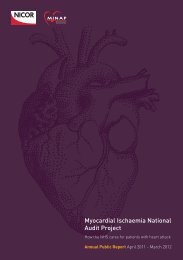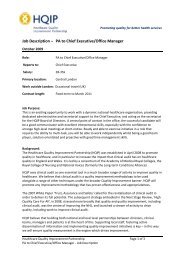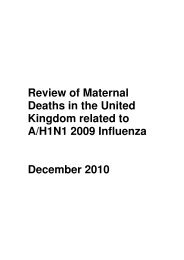Good Governance Handbook - HQIP
Good Governance Handbook - HQIP
Good Governance Handbook - HQIP
You also want an ePaper? Increase the reach of your titles
YUMPU automatically turns print PDFs into web optimized ePapers that Google loves.
wait to be asked, because we care.<br />
Improving lives. We strive to improve health and well-being and people’s experiences<br />
of the NHS. We value excellence and professionalism wherever we find it – in the<br />
everyday things that make people’s lives better as much as in clinical practice, service<br />
improvements and innovation.<br />
Working together for patients. We put patients first in everything we do, by reaching<br />
out to staff, patients, carers, families, communities, and professionals outside the<br />
NHS. We put the needs of patients and communities before organisational<br />
boundaries.<br />
Everyone counts. We use our resources for the benefit of the whole community, and<br />
make sure nobody is excluded or left behind. We accept that some people need more<br />
help, that difficult decisions have to be taken – and that when we waste resources we<br />
waste others’ opportunities. We recognise that we all have a part to play in making<br />
ourselves and our communities healthier.<br />
6.4.3 Rights, pledges and responsibilities<br />
The Constitution is to set out clearly what patients, the public and staff can expect<br />
from the NHS and what the NHS expects from them in return. The Constitution<br />
distinguishes between rights, pledges and responsibilities:<br />
Rights. A right is a legal entitlement protected by law. The Constitution sets out a<br />
number of rights, which include rights conferred explicitly by law and rights derived<br />
from legal obligations imposed on NHS bodies and other healthcare providers. The<br />
Constitution brings together these rights in one place but it does not create or replace<br />
them.<br />
Pledges. This Constitution also contains pledges which the NHS is committed to<br />
achieve, supported by its management and regulatory systems. The pledges are not<br />
legally binding and cannot be guaranteed for everyone all of the time, because they<br />
express an ambition to improve, going above and beyond legal rights.<br />
Responsibilities. The Constitution sets out expectations of how patients, the public<br />
and staff can help the NHS work effectively and ensure that finite resources are used<br />
fairly. This <strong>Handbook</strong> gives further information on those responsibilities.<br />
6.5 Board etiquette (based on Common Purpose)<br />
Boards should be explicit in their values and how they intend to conduct business.<br />
The board should recognise the importance of constructive challenge and ensure<br />
there is an equal degree of openness and transparency between board members. To<br />
this end, many boards have adapted and adopted the protocol or etiquette<br />
developed in the Integrated <strong>Governance</strong> <strong>Handbook</strong>2 from Common Purpose<br />
principles.<br />
Boards and their members should:<br />
www.good-governance.org.uk 26



